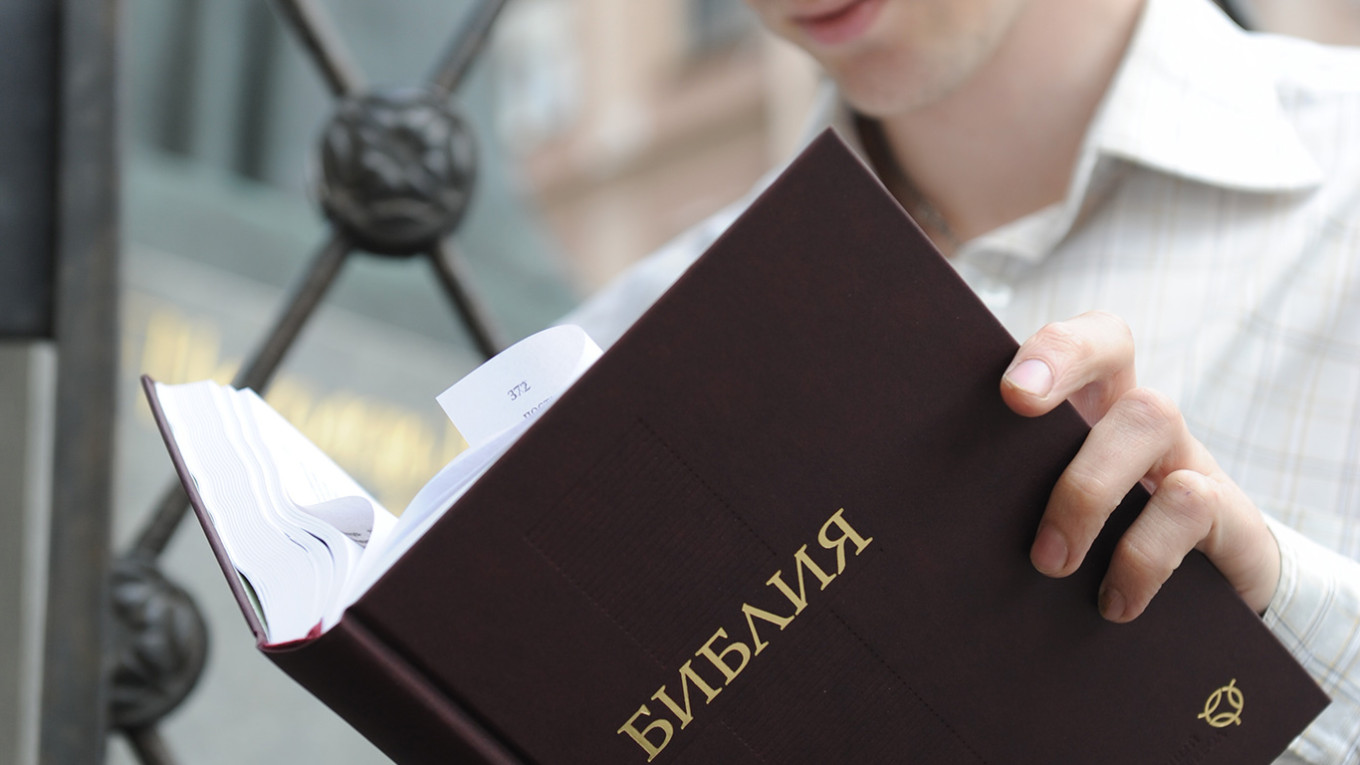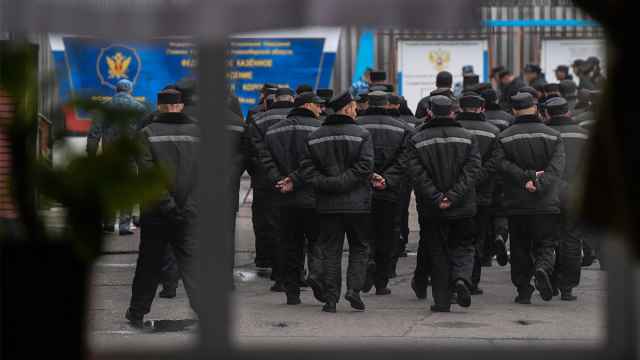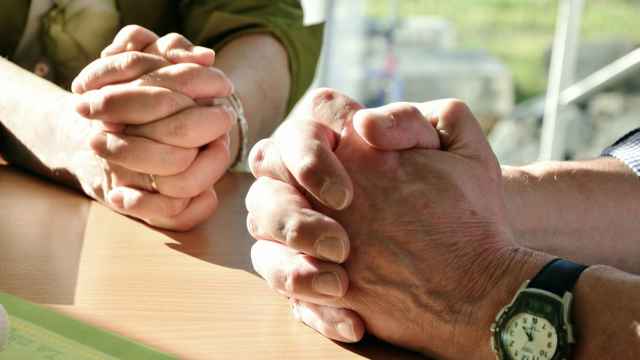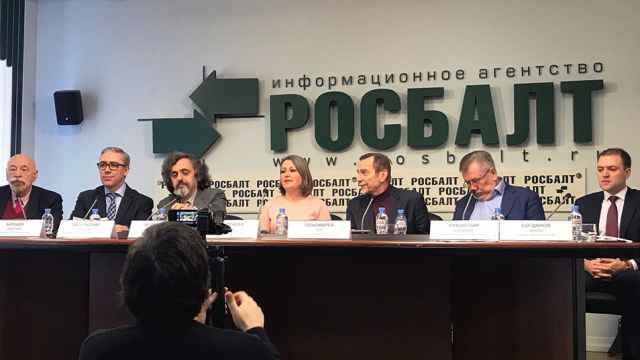When Russia added the Jehovah’s Witnesses to the country’s list of “extremist organizations” in April 2017, few could imagine the scale and longevity of repressions that the decision would set into motion.
“I could never have imagined that this could directly affect not only me, but anyone in the community,” said Alla, whose husband was sentenced to seven years in prison on charges linked to the Supreme Court’s ruling. She asked to use a pseudonym due to concerns for her and her family’s safety.
“Everything that was decided back then was a ban on the activities of legal entities. Unregistered groups such as gatherings should not have been affected at all. There was no ban on the practice of the faith itself,” Alla told The Moscow Times.
The Jehovah's Witnesses is a Christian religious movement founded in the U.S. in the latter half of the 19th century which bases its beliefs solely on the text of the Bible.
In 2023, the Jehovah's Witnesses reported having more than 8.8 million active members worldwide.
The movement’s members believe in the imminent approach of Armageddon and are also known for their radical pacifist convictions and non-participation in political life.
While Jehovah’s Witnesses believe in modern medicine, members of the faith refuse blood transfusion — an aspect of the faith exploited by the Justice Ministry in proving the allegedly “extremist” nature of the faith.
There were about 170,000 Jehovah's Witnesses in Russia at the time of the group’s ban. As many as 833 of them have faced persecution for their religious beliefs in the 7.5 years since it came into effect, according to records maintained by the organization.
“It's a bit of a mystery for Jehovah's Witnesses why Russia has attacked us because we're known as peaceful people,” said Jarrod Lopes of the Public Information Office at the World Headquarters of Jehovah’s Witnesses in New York.
“It's a mystery why they would even consider using the word ‘extremism’...which prompts most people to conjure an image of someone hyper-violent in their mind — whereas Jehovah's Witnesses go to the extreme, if [anything], to be peaceful,” Lopes told The Moscow Times.
“We'd rather go to prison than go to war,” he added.
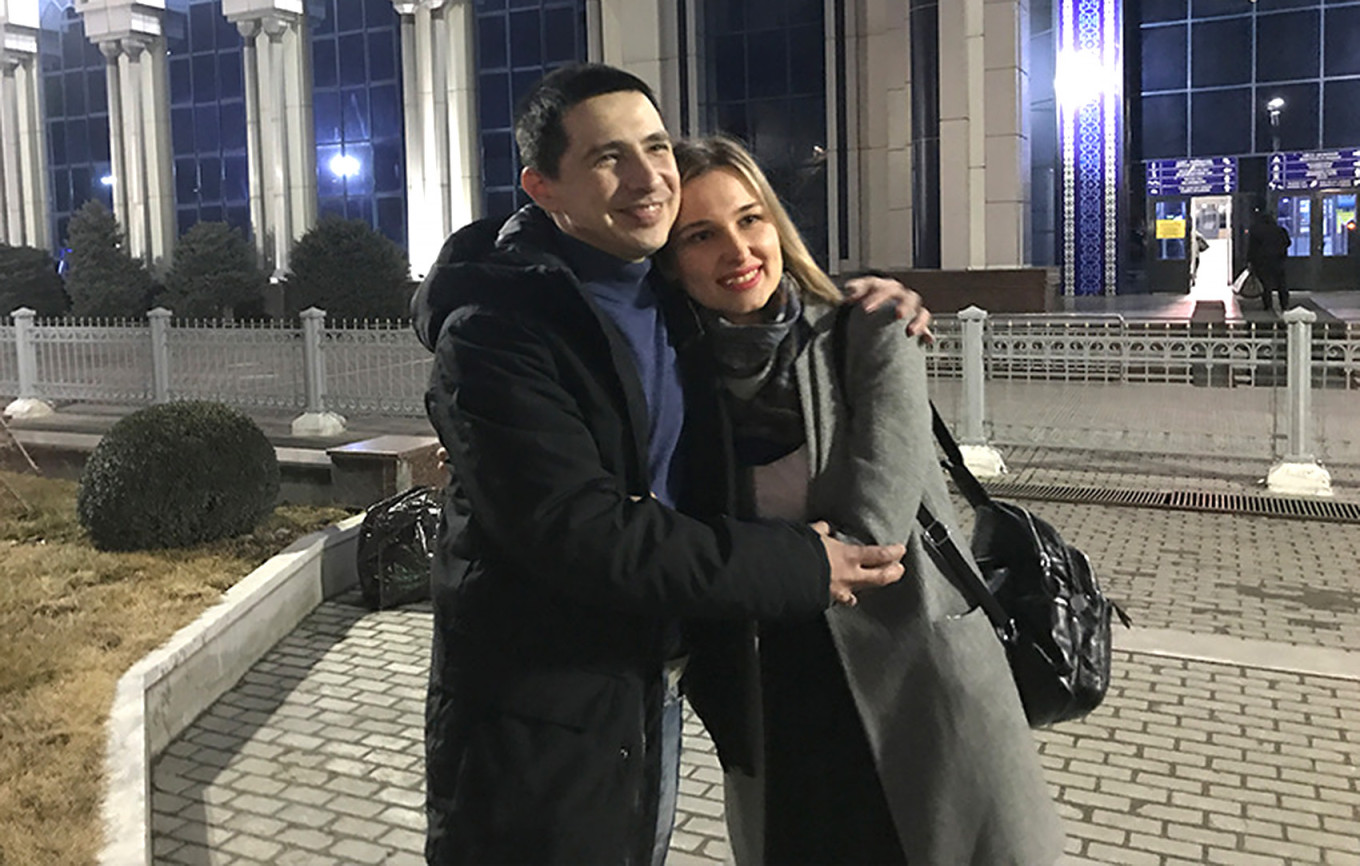
But like other Jehovah's Witnesses, Lopes believes that the Russian Orthodox Church may have played a role in the marginalization and eventual ban of Jehovah's Witnesses — a theory also backed by some sociologists and human rights defenders.
Lopes stressed that the 100,000 Jehovah's Witnesses living across the country’s 11 time zones were never a “real threat” to Russia’s all-dominant Orthodox Church, saying “it's the optics that mattered.”
“Seeing us on the street, sharing Bible literature with people for free, made them nervous,” said Lopes. “The Orthodox Church and other religions sometimes fear that we're going to convert everyone [in Russia]. But that's really not our goal. Our goal is to just share the Bible's message.”
Feliks Makhammadiyev, who was sentenced to three years in prison on charges of “organizing the activities” of a banned religious association in September 2019, is one of 174 believers put behind bars for practicing their faith in Russia.
“Gatherings with fellow believers, singing hymns, praying and preaching became grounds for prosecution,” said Makhammadiyev, noting that the evidence used against him dated back to 2016 — a time when the group was not yet outlawed.
In February 2020, Makhammadiyev, who was first detained in 2018, was transferred to Correctional Colony No. 1 in the Kazakhstan-bordering Orenburg region to serve the remainder of his sentence.
“There were five of us Jehovah's Witnesses who ended up in this colony. All of us were beaten by prison staff upon arrival,” Makhammadiyev recalled in a conversation with The Moscow Times. “This was nothing other than an act of humiliation.”
Makhammadiyev sustained multiple rib fractures in the incident and soon was hospitalized with pneumothorax, a life-threatening medical condition characterized by an abnormal collection of air in the pleural space between the lung and the chest wall.
The decision of the five Jehovah's Witnesses to file official complaints over maltreatment prompted further hostility from both prison employees and fellow inmates who feared that a possible prison inspection could uproot their lives.
“After some time, the other inmates began to see who we truly are. We communicated with everyone kindly, treated them with respect and did good deeds. Over time, many of the inmates…began to respect us,” said Makhammadiyev, who now lives in Uzbekistan, where he was deported after being stripped of his Russian citizenship.
Alla said devotion to the principles of “love for God and love for one's neighbor” practiced by Jehovah's Witnesses helped her husband, who was also born abroad, endure more than two years in detention.
“One could say that my husband was cleared of extremism accusations by other people at the pre-trial detention center,” said Alla.
Alla recalled that one of her husband’s former cellmates wrote him an emotional letter upon his release, in which he stated that even though he had heard about Jehovah's Witnesses before, “the stories about them seemed too good to be true.”
“However, getting to know my husband changed his mind,” said the woman.
“‘You are just like it is written in the Bible. You are honest, decent, kind and patient. I am grateful that I met you in my life,’ he wrote. Now, from time to time, he orders some food for my husband at the detention center to lift his spirits,” she recalled.
Though Alla maintained “having no hope” that her husband’s seven-year sentence will be reduced, she, like other Jehovah's Witnesses who spoke with The Moscow Times, believes that persecution of her fellow believers in Russia will end as it did once before.
“Jehovah's Witnesses have always outlasted their persecution and we fully expect that to happen again,” said Lopes of the World Headquarters of Jehovah’s Witnesses in New York.
“How that happens, we don't know. It's happened in different ways before, but we fully expect to outlast this regime,” he added.
In 1951, the Soviet authorities deported nearly 10,000 Jehovah’s Witnesses from the Baltic states, Moldova, Ukraine and Belarus to Siberia during Operation Sever (North).
Jehovah’s Witnesses were only permitted to relocate from the places of forced resettlement in 1965. In 1996, President Boris Yeltsin signed a decree recognizing the group’s members as victims of political repression.
“There are new people in power now, different people…I truly hope that they will take the time to understand our beliefs and see that Jehovah's Witnesses are kind-hearted and do good to society,” said Alla.
“I hope that the authorities will recognize that Jehovah's Witnesses are also honest taxpayers, for instance. Among us, there is no bribery or corruption, and we can be relied upon in various areas of society.”
A Message from The Moscow Times:
Dear readers,
We are facing unprecedented challenges. Russia's Prosecutor General's Office has designated The Moscow Times as an "undesirable" organization, criminalizing our work and putting our staff at risk of prosecution. This follows our earlier unjust labeling as a "foreign agent."
These actions are direct attempts to silence independent journalism in Russia. The authorities claim our work "discredits the decisions of the Russian leadership." We see things differently: we strive to provide accurate, unbiased reporting on Russia.
We, the journalists of The Moscow Times, refuse to be silenced. But to continue our work, we need your help.
Your support, no matter how small, makes a world of difference. If you can, please support us monthly starting from just $2. It's quick to set up, and every contribution makes a significant impact.
By supporting The Moscow Times, you're defending open, independent journalism in the face of repression. Thank you for standing with us.
Remind me later.



